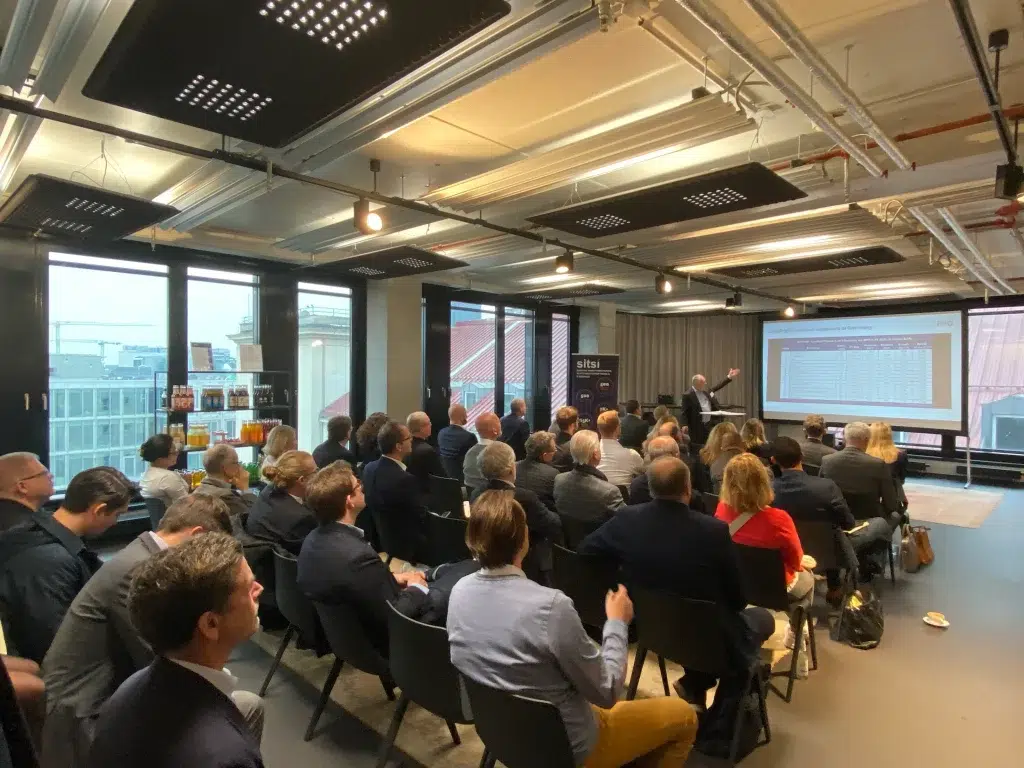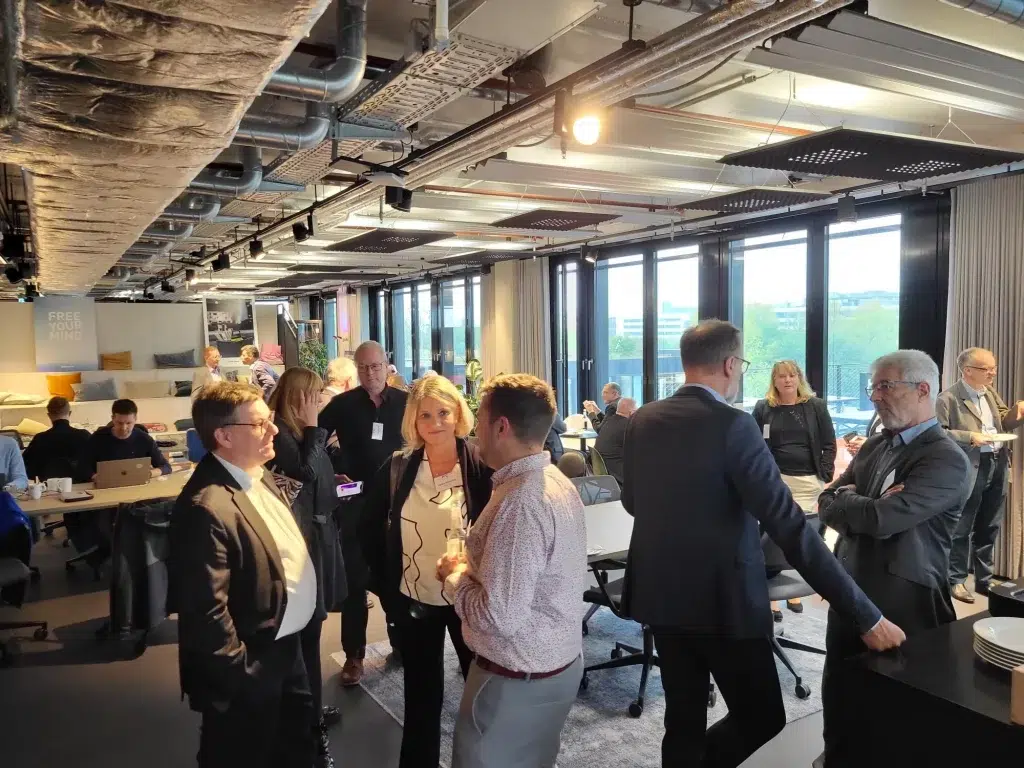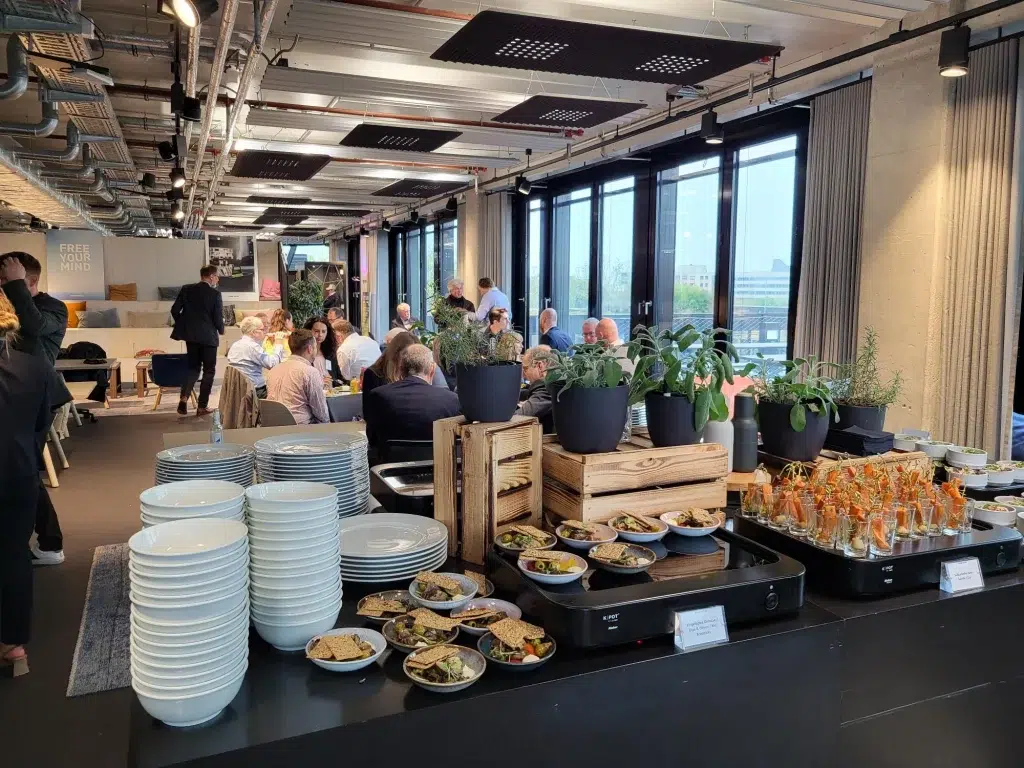A look back at the highlights of our main 2023 event, PAC Horizons, in Frankfurt and Munich
We held our annual PAC HORIZONS events on October 17 in Frankfurt and October 24 in Munich, bringing together IT leaders for two days of insight, innovation, and networking. PAC analysts shared insights on pivotal IT market-related topics, offering a glimpse at what the future holds. We also presented our 2024 Research Agenda, giving participants an idea of our focus topics for the coming year and allowing them to align their strategic planning accordingly.
These events weren’t just about knowledge; they also provided a platform for networking and collaboration. IT professionals from services and software companies came together to exchange ideas, discuss industry topics, and build connections. To discover the highlights and key takeaways from these gatherings, read our blog post, which recaps the highlights of our PAC HORIZONS events in Germany.

Overview of the digital market with a focus on the triad of data, digital, and cloud
- Christophe Chalons, PAC Chief Analyst, gave an update on the global and European markets. He observes a clear slowdown in activity for many suppliers, particularly the hyperscalers who, until recently, enjoyed unbridled growth.
- Furthermore, the German market showed very strong momentum in 2021 and 2022, well above the European average. 2023 started very well but growth has been slowing from one quarter to the next ever since. After heavy investments in digital customer engagement and cloud, growth in these two segments has plummeted. Currently, customers are more focused on getting their cloud consumption under control rather than launching new cloud deployments. Growth in AI/generative AI and SAP S/4 implementations, on the other hand, is accelerating. Security, industrial IT/OT, and sustainability remain strong markets.
- Growth has slumped in the manufacturing industry in particular, especially in the automotive sector, which is immensely important for the German IT market. The public sector, on the other hand, and above all the federal authorities and defense sub-sectors, have generated very resilient growth for IT suppliers.
- Due to the persistently difficult economic environment and the continued flattening of inflation, which is affecting daily rates, we expect a further slight slowdown in growth in 2024. However, there are some exciting opportunities emerging, especially in the upper mid-market (“gehobener Mittelstand”).
What IT service providers can support their clients in reaching their environmental objectives, and how do they do this?
In one of the five break-out sessions, PAC Analyst Aida Oganesov examined the question: What IT service providers can support their clients in reaching their environmental objectives, and how do they do this? Environmental sustainability as part of the ubiquitous ESG (environmental, social, and governance) regulations and strategies is among the most dynamic topics in the IT services market.
Under pressure from regulations, society, and business alike, all leading IT service providers have not only made efforts to reduce their own carbon footprint but have also developed special offerings to support their customers in the definition, monitoring, and achievement of their sustainability goals.
We at PAC analyze the IT provider landscape in Europe and assess their approaches, offerings, strategies, and references. We publish the results in various PAC RADARs, each focusing on a wide variety of customer requirements and providing a quick overview of the positioning of the most relevant providers. Approaches to increasing ecological sustainability are manifold, as sustainability challenges can touch various dimensions of a business model.
Agenda of the German manufacturing industry
PAC Analyst Mopia Kamdoum shared details about the agenda of the German manufacturing industry – Inflation, higher energy costs, supply chain issues, and skill shortages have prompted German manufacturers to look for ways to reduce costs and improve efficiencies. To do so, the industry is focusing on data and analytics as a means to obtain more insights and make better-informed decisions across all IT areas.
In the IoT area, analytics is helping the use cases (e.g., visual inspections, predictive maintenance, etc.) mature faster. In the digital customer engagement (DCE) space, manufacturers want more insights into how clients use their products and services.
When it comes to (generative) AI, relevant features are currently being introduced across all major business applications. German manufacturers are hoping to automate workflows and improve customer and employee experiences. As for cyber security and ESG, they are both high on the industry’s agenda but are still mainly being pushed by external factors (e.g., regulators, clients’ expectations).
Insights into cyber resilience and how it drives the market
Aline Trautmann, PAC Analyst, and Wolfgang Schwab, PAC Principal Analyst & Head of Cyber Security Practice, provided insights into cyber resilience and how it drives the market – Cyber resilience is driven by geopolitical tensions (e.g., state-backed hacker organizations such as Vulcan Files) and regulatory initiatives (NIS2, DORA, CRA).
This is why PAC predicts stable growth in the cyber security market, especially in security outsourcing. Drivers will be the lack of skilled staff, especially experienced cyber security experts, and the need to work with limited budgets.
The most important trends are automation and the use of artificial intelligence (AI), the adoption of security mesh, and the related consolidation of security vendors and service providers. Cyber security experts Aline Trautmann and Wolfgang Schwab believe that best-of-breed is dead.
Key findings S/4HANA survey
Joachim Hackmann, PAC Principal Analyst & Head of BAS Practice, and Frank Naujoks, PAC Principal Analyst, shared some findings from PAC’s latest S/4HANA survey among user organizations – More than one-third of SAP ERP customers have already migrated essential systems to S/4HANA. This means that the majority of migration projects are still in the pipeline. According to PAC’s CxO Survey among 550 companies in Europe, 80% of the companies aim to complete their migration projects by 2027.
Migration promises to modernize, automate, and harmonize business processes. The expected high migration costs and customization effort are a cause for concern but do not stop projects from being launched. All in all, hardly any companies have decided to turn their back on SAP and are looking for an alternative ERP solution.
Will generative AI generate intelligence that benefits the IT ecosystem?
Bertrand Lafforgue, Chairman of Konverso, presented key facts and principles for the much-publicized subject of generative AI and suggested potential use cases to be considered by IT companies. He provided some interesting case studies, backed up by mini-demos. This topic was actually raised and discussed throughout the morning; everybody agreed that this new generation of AI is different and could rapidly become a real game changer for many businesses, especially those with the expertise to deploy it.
Frank Naujoks looked at AI from a different perspective: after the media hype around AI and GenAI, the work now begins – both on the end-user side and for the IT industry. The EU is working on establishing the legal framework through the Artificial Intelligence Act over the next few years, but companies can’t wait that long. After all, the use of generative AI in just a few functions could account for most of the technology’s impact in potential enterprise use cases. That is why a quarter of companies have already established an AI strategy and another 39% are setting it up right now.
A big thank you to all participants for making our PAC HORIZONS events in Frankfurt and Munich a success. We’re very excited about the insights gained and the connections built and we can’t wait to meet again for more exciting events in 2024. See you then!

